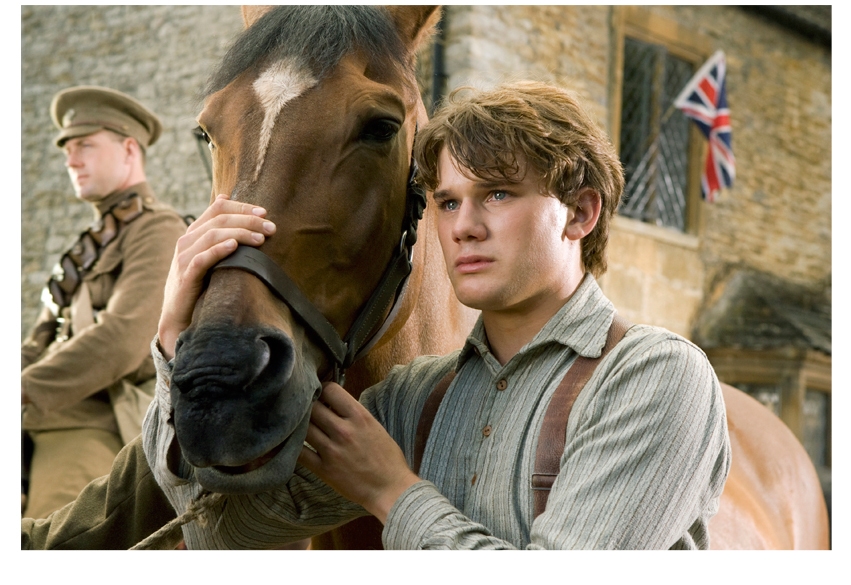Steven Spielberg’s version of War Horse is like an extended Sunday afternoon episode of Black Beauty gone mad via the first world war, just so you know, and although it made me cry this is no endorsement. I rarely cry in real life but have been known to howl in the cinema, even when I’m aware something isn’t much good. It’s as if my brain and tear ducts are entirely unconnected so while, in this instance, my brain was saying this is a mediocre film, prosaic, plodding, over-sugared and with nothing like the power or imagination of the stage play, the tears still plopped. I wish there was something I could do about it. Is there a lead available to somehow connect my brain to my tear ducts? From Maplins, say? It would be good if there was.
Based on the Michael Morpurgo novel which has already been adapted as that National Theatre play, our story begins in a paradisial, chocolate-boxy Devon as Ted Narracott (Peter Mullan), a hard-drinking farmer, rashly bids for a thoroughbred horse at auction, just to spite his landlord (David Thewlis) and no matter that this blows his rent money. His long-suffering wife Rose (Emily Watson) is distraught. Ted was meant to bring home a big, clumping working horse at a low price. But their son, the earnest and earnestly handsome Albert (Jeremy Irvine), falls in love with the horse, calls it Joey and embarks on the seemingly impossible task of teaching him to plough.
Inevitably, boy and horse succeed, against all odds — even Rose tears up at this; there’s a thing — but the turnip crop is destroyed by rain so Ted, desperate for money in the face of eviction, sells Joey to the British army. This initial stretch, which also includes the obligatory honking, comedy goose and clichéd country types, is cloyingly bucolic as well as familiar — not just Black Beauty, but also Babe and Lassie and any animal film there has ever been, basically — but when Albert opens the barn and finds Joey gone, I was off. It is embarrassing. I will call Maplins this afternoon.
Joey, a thoroughly magnificent and noble animal, as all horses are, is initially purchased by the kindly Captain Nicholls (Tom Hiddleston) and deployed in an attack on a German encampment in occupied France. The battle scenes are spectacular, and this one begins quietly in a wheatfield and then explodes in thundering hooves as the horses charge. This is as powerful as anything in the film, and the overhead shot of human and horse corpses littering a battlefield shows where Spielberg’s real interest and skill might lie. But from here on in, Joey gallops from one thinly sketched and transparently functional human character to the next; from a couple of frightened teen German soldiers who abscond, through to an old French jam-maker and his sickly yet precocious granddaughter and then back to the Germans where he is used to haul artillery through the mud and gets horribly stranded, caught on barbed wire — that set me off again — and all the while we are asking ourselves: will the boy, who has enlisted, and the horse ever find each other again? Through a set of far-fetched coincidences, maybe? Honestly, what do you think?
This is literal-minded, broad-canvas, straightforward storytelling and, as such, we never feel as if we are being carried away by the narrative, more as if we are being safely ushered from one set piece to the next, with a fairly dull chunk in the middle. And whereas the exquisite puppetry of the stage play somehow allowed us to focus on the innocence and nobility of the horse and the futility and devastation of war — it has something to do with the required leap of imagination, I think — this is always emotionally obvious, as well as consistently predictable. Something important has been lost in translation that cannot be compensated for by realism or pictorial beauty, and when I cried it was totally in spite of myself, and is no endorsement, like I said. PC World? Do you think it might have something?





Comments